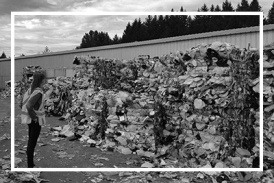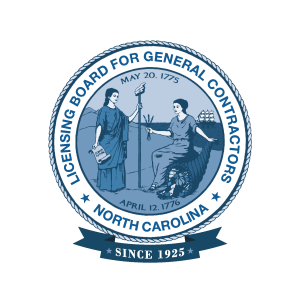After the Storm Comes the Scam: NCLBGC Urges Caution Against Unlicensed Contractors
North Carolina Licensing Board for General Contractors Warns Public About Unlicensed Contractor Activity During Hurricane Season
The NCLBGC urges citizens to exercise caution and avoid falling victim to scams by individuals posing as legitimate contractors. Licensed general contractors in North Carolina have met strict state requirements, including passing an examination, meeting the financial requirements, and completing continuing education courses.
According to the National Oceanic and Atmospheric Administration (NOAA), this year's hurricane season is expected to be above normal, as above average Atlantic Ocean temperatures lay the groundwork. The outlook for the season predicts a 60% chance of an above-normal season. NOAA anticipates 13 to 19 named storms during the season, with 6 to 10 of them potentially developing into hurricanes. The hurricane season officially runs from June 1st to November 30th, with the peak season typically occurring between August and October.
A quote from NOAA’s prediction states, “As we witnessed last year with significant inland flooding from hurricanes Helene and Debby, the impacts of hurricanes can reach far beyond coastal communities,” said Acting NOAA Administrator, Laura Grimm. “NOAA is critical for the delivery of early and accurate forecasts and warnings, and provides the scientific expertise needed to save lives and property.”
"Each year during hurricane season, we see an increase in fraudulent activity by individuals posing as legitimate contractors," states Ryan Cody, Executive Director at the NCLBGC. “We strongly encourage homeowners to protect themselves by verifying that any contractor they hire holds a valid North Carolina general contractors license."
The NCLBCG reminds North Carolinians of the following:
• Any project quoted at $40,000 or more requires a valid NC general contractors license.
• Projects less than $40,000 do not require a license. However, hiring a NC licensed general contractor may offer security in knowing that you have contracted with a general contractor who is authorized to perform work in NC. Ask for proof that the contractor is licensed. The NCLBGC does not recognize licenses issued by other states or countries. Citizens can verify if the contractor is properly licensed in North Carolina by 1) searching on the NCLBGC’s website at www.nclbgc.org; 2)calling the NCLBGC at (919)-571-4183.
• Be wary of door-to-door repair solicitations or people who demand deposits or payments in cash.
• Contact your insurance company for guidance before beginning any work. Do not make a large deposit or upfront payment in full. Require a written contract that details the work to be done, materials to be used, a payment schedule that is based on completion of work and a timeline for work to be completed. A licensed general contractor is required to list their license number on all contracts.
• Do not make payments before work specified on the payment schedule is completed.
• Do not make payments for any work not specified in the contract unless it has been submitted and approved in writing by you before the additional work begins.
• Request a Certificate of Insurance from the contractor and verify it is valid by contacting the party who issued it.
• Before making final payment, evaluate the completed work and require the contractor to confirm that all subcontractors and suppliers have been paid to eliminate potential liens on your property.
• Contact the local building inspections and permitting office to determine if permits are required to assure building code compliance. If permits are required, confirm with the permit office that the contractor has acquired them before construction begins.
• Contact local law enforcement if you suspect you are being scammed by a contractor.
• Contact the NC Attorney General’s office if you suspect you are being price gouged by the contractor at https://ncdoj.gov/file-a-complaint/price-gouging/ or call toll free within North Carolina at (877)-5-NO-SCAM or (877)-566-7226.
The NCLBGC is the state agency that issues licenses to approximately 30,000 licensed general contractors in North Carolina. Additional information is available at nclbgc.org or by calling or (919) 571-4183.
Note to Media: Ryan Cody is available for on-camera or phone interviews related to this topic.
Megan Heater
S&A Communications
mheater@sacommunications.com
Legal Disclaimer:
EIN Presswire provides this news content "as is" without warranty of any kind. We do not accept any responsibility or liability for the accuracy, content, images, videos, licenses, completeness, legality, or reliability of the information contained in this article. If you have any complaints or copyright issues related to this article, kindly contact the author above.
NEVIS UNVEILS NEW BRANDING CAMPAIGN AT CARIBBEAN WEEK NYC
Washington County Waterways Commission Announces Underground Railroad Memorial Dedication Event
UK Minister for the Indo-Pacific Catherine West MP Visits Shield Works in Zhuhai for High-Level Business Roundtable
Kalendarium
Więcej ważnych informacji
 Jedynka Newserii
Jedynka Newserii

 Jedynka Newserii
Jedynka Newserii

Handel

Ze względu na różnice w cenach surowce wtórne przegrywają z pierwotnymi. To powoduje problemy branży recyklingowej
Rozporządzenie PPWR stawia ambitne cele w zakresie wykorzystania recyklatów w poszczególnych rodzajach opakowań. To będzie oznaczało wzrost popytu na materiały wtórne pochodzące z recyklingu. Obecnie problemy branży recyklingu mogą spowodować, że popyt będzie zaspokajany głównie przez import. Dziś do dobrowolnego wykorzystania recyklatów nie zachęcają przede wszystkim ceny – surowiec pierwotny można kupić taniej niż ten z recyklingu.
Przemysł spożywczy
Rośnie presja konkurencyjna na unijne rolnictwo. Bez rekompensat sytuacja rolników może się pogarszać

Rolnictwo i żywność, w tym rybołówstwo, są sektorami strategicznymi dla UE. System rolno-spożywczy, oparty na jednolitym rynku europejskim, wytwarza ponad 900 mld euro wartości dodanej. Jego konkurencyjność stoi jednak przed wieloma wyzwaniami – to przede wszystkim eksport z Ukrainy i niedługo także z krajów Mercosur, a także presja związana z oczekiwaniami konsumentów i Zielonym Ładem. Bez rekompensat rolnikom może być trudno tym wyzwaniom sprostać.
Transport
Infrastruktury ładowania elektryków przybywa w szybkim tempie. Inwestorzy jednak napotykają szereg barier

Liczba punktów ładowania samochodów elektrycznych wynosi dziś ok. 10 tys., a tempo wzrostu wynosi ok. 50 proc. r/r. Dynamika ta przez wiele miesięcy była wyższa niż wyniki samego rynku samochodów elektrycznych, na które w poprzednim roku wpływało zawieszenie rządowych dopłat do zakupu elektryka. Pierwszy kwartał br. zamknął się 22-proc. wzrostem liczby rejestracji w ujęciu rocznym, ale kwiecień przyniósł już wyraźne odbicie – o 100 proc.
Partner serwisu
Szkolenia

Akademia Newserii
Akademia Newserii to projekt, w ramach którego najlepsi polscy dziennikarze biznesowi, giełdowi oraz lifestylowi, a także szkoleniowcy z wieloletnim doświadczeniem dzielą się swoją wiedzą nt. pracy z mediami.









.gif)

 |
| |
| |
|